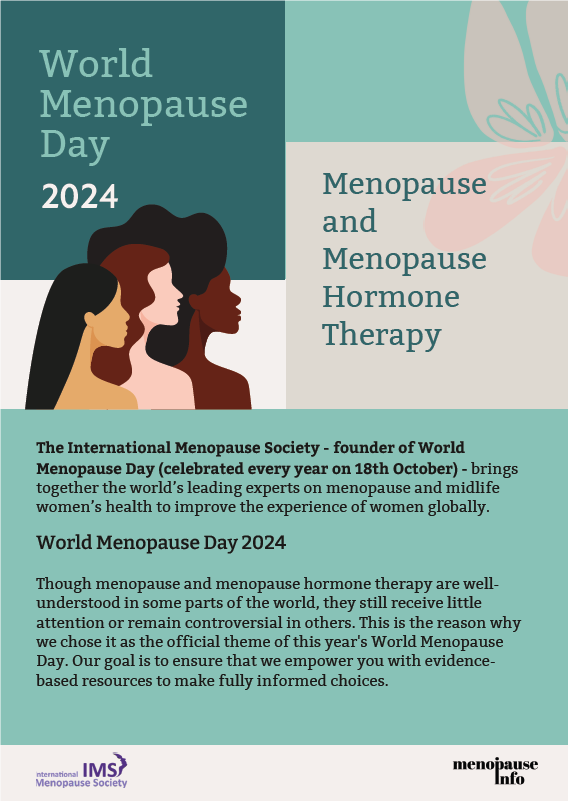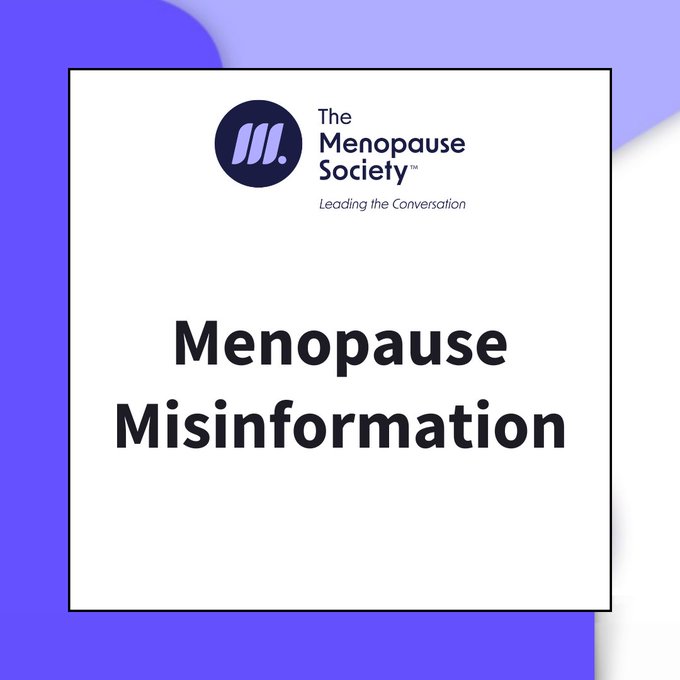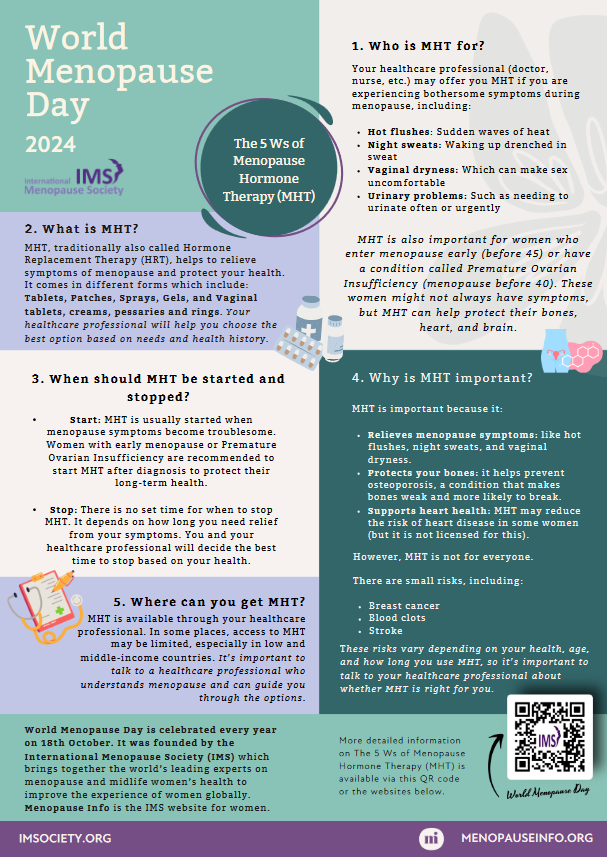“The type of HT your provider prescribes may depend on
what menopause symptoms you have. For example, pills or
patches can treat night sweats. Vaginal rings, creams or…”.1
Umbrella
What may the Hormone Therapy Types Umbrella include?
Depending on the Source (DotS) this Umbrella may include:
- Combined/Combination HT/HRT
- Continuous HT
- Continuous Oestrogen and Progestogen Combinations
- Cyclical/Sequential HT/HRT
- Estrogen Therapy (ET)
- Estrogen-Progestogen Therapy (EPT)
- Hormone Replacement Therapy (HRT)
- Hormone Therapy (HT)
- Hormone Therapy Forms
- Menopausal Hormone Therapy (MHT)
- Oestrogen Only HT/HRT/Therapy
- Oestrogen and Progestogen Combination HRT
- Progestin/Progestogen
Date
What can it be important to be clear about with hormone therapy (HT) information?
It can be important to be clear about the date of all information including the date of HT information, because this information may have been updated.
Symptoms or Chronic Conditions
What can it also be important to be clear about with HT information?
It can also be important to be clear about whether HT information is about the use of HT for the management of menopausal symptoms such as hot flushes, night sweats and vaginal dryness or for the prevention of chronic conditions such as cardiovascular disease, cancer and osteoporosis.
Types
What are types of hormone therapy (HT)?
In Treatments for Menopause: Menopausal Hormone Therapy (MHT) – Types of MHT: Oestrogen and Progesterone Therapy the (Australasian) Jean Hailes for Women’s Health (JH) explain:
If you haven’t had a hysterectomy, oestrogen and progesterone are used together, as progesterone reduces the risk of endometrial cancer (cancer of the uterus).
Depending on your situation, your doctor may recommend other combinations of oestrogen and progestogen (including progesterone and other progesterone-like hormones)”.2
In Hormone Therapy: Types of Hormone Therapy the Menopause Society (formerly the North American Menopause Society) elaborate on:
- Systemic therapy: When hormones are delivered throughout the body via pills, patches, sprays, gels, or a vaginal ring, this is known as systemic therapy. Systemic doses are absorbed into the bloodstream at high-enough levels to have significant effects in widespread areas, which is needed to treat symptoms of menopause such as hot flashes
- Low-dose therapy: Also called vaginal estrogen therapy (ET) for GSM after menopause, this therapy is administered into the vagina and is effective for both moisturizing and rebuilding tissue. Very little goes into blood circulation, so the risks are far lower”.3
Different Types
What are some different types of HT?
In Types of Hormone Therapy: Forms of Hormone Therapy the (United States) MedlinePlus elaborate on:
 On page four of Menopause and Menopause Hormone Therapy: 2. What Is MHT? Types of MHT the International Menopause Society’s (IMS) Leaflet for Women for World Menopause Day 2024, the IMS note:
On page four of Menopause and Menopause Hormone Therapy: 2. What Is MHT? Types of MHT the International Menopause Society’s (IMS) Leaflet for Women for World Menopause Day 2024, the IMS note:
- Tablets: Easy to take, but may have higher risks of blood clots
- Patches, sprays, and gels: Absorbed through the skin and are often safer for women with certain risk factors
- Vaginal creams, gels, tablets and rings: Often used for vaginal symptoms like dryness or discomfort during sex”.5
Uterus or No Uterus
Is the type of HT prescribed for women with a uterus different from the type of HT prescribed for women without a uterus?
On page one in Deciding About Hormone Therapy Use, published February 2025, the Menopause Society (formerly the North American Menopause Society) explain:
Vaginal Dryness
What type of HT may be prescribed for women with vaginal dryness?
Deciding About Hormone Therapy Use the Menopause Society also note:
Health Care Provider
How do I find out what type of HT to use?
In Types of Hormone Replacement Therapy (HRT) Therapy the (United Kingdom) NHS elaborate on:
If you’re considering taking HRT, talk to a GP about the options suitable for you”.8
In Treatments for Menopause: Menopausal Hormone Therapy (MHT) – How Do You Take MHT? the JH also note:
Health Topics A-Z
Where may I find Health Topics A-Z related to Hormone Therapy Types?
In Health Topics A-Z you may find:
Health Topics A-Z
- Hormone Therapy
- Hormone Therapy Alternatives
- Hormone Therapy Benefits and Risks
- Hormone Therapy Options
- Hormone Therapy Videos
- Hormone Therapy and Estrogen Plus Progestogen Therapy
- Hormone Therapy and Estrogen Therapy
- Hormone Therapy and Systemic Therapy
- Hormone Therapy and Tibolone
- Menopause Videos 2025
Links
Where may I find Links related to Hormone Therapy Types?
Your Country may have Links similar to:
Links
This Links List to third party websites is neither comprehensive nor exhaustive. Inclusion on this Links List does not imply endorsement or recommendation. Non-inclusion on this Links List does not imply non-endorsement or non-recommendation. Third party websites are not under the control of Meno Martha International Menopause Directory. Third party websites may contain explicit medical images and/or sexual references. Please read Meno Martha International Menopause Directory’s Links Policy before proceeding to a Link. Please contact Webmaster if you experience a problem with a Link.New or Updated
- FDA Expert Panel on Menopause and Hormone Replacement Therapy for Women [17 July 2025]
- HRT: How To Find the Right Dose & Type | Dr Louise Newson [August 2025]
- Q&A – Doses and Types of HRT | Dr Louise Newson [04 January 2025]
- The Menopause Society Statement on Misinformation Surrounding Hormone Therapy

- Webinars: Previous – IMS & ISE Symposium: What’s Hot? Options for Treatment of Hot Flushes 2025
- Webinars: Previous – The Burn, the Itch, the Pain, the Urge: GSM In Women
- BMS Statement on Testosterone
- BMS TV: Bioidentical Hormones
- BMS TV: HRT and Breast Cancer: Overall Risks and Benefits
- BMS TV: HRT and the Risk of Breast Cancer
- BMS TV: Hormone Replacement Therapy (HRT)
- BMS TV: Testosterone Explained
- BMS TV: Urogenital Atrophy
- Bioidentical Hormones: Are They Safer?
- Bleeding on HRT Explained | Dr Louise Newson Live
- British Menopause Society Statement on HRT Dosages
- Compounded Bioidentical Hormone Therapy [Video]
- Consumer Video and Podcast Series: 2023 Consumer Videos and Podcasts – Lifestyle Modification and Prevention of Breast Cancer
- Consumer Video and Podcast Series: 2024 Consumer Videos and Podcasts – Preparing for Your Menopause Health Care Visit
- Deciding About Hormone Therapy Use
- Experts Answer Your Menopause Questions In New Video
- FAQs: Hormone Therapy for Menopause
- FDA Expert Panel on Menopause and Hormone Replacement Therapy for Women
- Genitourinary Syndrome of Menopause
- Genitourinary Syndrome of Menopause
- HRT
- HRT Questions Answered
- HRT – Types, Doses and Regimens
- HRT: Benefits and Risks
- HRT: How To Find the Right Dose & Type | Dr Louise Newson
- Hormone Replacement Therapy (HRT)
- Hormone Replacement Therapy (HRT): Benefits and Risks of Hormone Replacement Therapy (HRT)
- Hormone Replacement Therapy (HRT): Continuous Combined Hormone Replacement Therapy (HRT) Tablets, Capsules and Patches
- Hormone Replacement Therapy (HRT): Oestrogen Tablets, Patches, Gel and Spray
- Hormone Replacement Therapy (HRT): Sequential Combined Hormone Replacement Therapy (HRT) Tablets and Patches
- Hormone Replacement Therapy (HRT): Side Effects of Hormone Replacement Therapy (HRT)
- Hormone Replacement Therapy (HRT): Tibolone
- Hormone Replacement Therapy (HRT): Types of Hormone Replacement Therapy (HRT)
- Hormone Replacement Therapy (HRT): Utrogestan (Micronised Progesterone)
- Hormone Replacement Therapy (HRT): Vaginal Oestrogen
- Hormone Replacement Therapy (HRT): Vaginal Oestrogen – About Vaginal Oestrogen
- Hormone Therapy: Four Things A Mayo Clinic Women’s Health Specialist Wants You To Know [+ Video Courtesy: Mayo Clinic News Network. Name Super/CG: Taryn Smith, M.D./Internal Medicine/Mayo Clinic]
- Hormone Therapy: Is It Right for You?
- Index To Drug-Specific Information [United States]
- Joint BMS FSRH RCGP RCOG SfE and RCN Women’s Health Forum Safety Alert
- Menopausal Hormone Therapy
- Menopausal Hormone Therapy and Breast Cancer Risk
- Menopausal Hormone Therapy and Venous Thromboembolism
- Menopausal Hormone Therapy, Heart Disease and Stroke
- Menopause
- Menopause Map: Downloadable Resources – My Personal Path Print Tools: Questions for Your Health Care Provider

- Menopause Patient Information [Videos] 2. Talking To Your GP About Menopause
- Menopause Patient Information [Videos] 3. The Risks & Benefits of HRT
- Menopause Patient Information [Videos] 4. The Different Types of HRT
- Menopause Symptoms: Mayo Clinic Expert Outlines Hormone and Nonhormonal Therapies
- Menopause Treatments: What Works, What Doesn’t
- Menopause and HRT: Fact and Fiction
- Menopause: Hormone Therapy – What Is Hormone Therapy for Menopause?
- Menopause: Identification and Management [NICE Guideline Published: 12 November 2015 Last Updated: 07 November 2024]

- Menopause: Identification and Management: NICE Guideline [NG23] [07 November 2024]
- Menopause: Understanding the Changes and Finding Relief | Dr Susan Davis | The Proof Podcast EP 256
- Misinformation Surrounding Hormone Therapy [2024]
- Navigating Menopause: Expert Insights and Solutions | Dr Susan Davis | The Proof Podcast EP 245
- Q&A – Doses and Types of HRT | Dr Louise Newson [04 January 2025]
- Risks and Benefits of MHT
- The 2023 Practitioner’s Toolkit for Managing Menopause
- The Menopause Society Statement on Misinformation Surrounding Hormone Therapy

- The Role of Topical Vaginal Oestrogen
- The Women’s Health Initiative Randomized Trials and Clinical Practice
- Tibolone As Menopausal Hormone Therapy
- Treatments for Menopause
- Types of Hormone Therapy
- UCalgary Research Reveals Importance of Route of Administration of Menopausal Hormone Therapy
- Updated 2024 NICE Menopause Guidance Summary
- Vaginal Dryness
- Video & Podcast Library: Videos – World Menopause Day 2024: Menopause and Hormone Therapy: Current Perspectives and Controversies
- Videos & Podcasts: Videos – Menopause and Hormone Therapy: Current Perspectives and Controversies
- Webinars: Previous – IMS & ISE Symposium: What’s Hot? Options for Treatment of Hot Flushes 2025
- Webinars: Previous – The Burn, the Itch, the Pain, the Urge: GSM In Women
- What Types of Vaginal Oestrogens Are There?
- World Menopause Day 2024: Leaflet for Women – Menopause and Menopause Hormone Therapy [Multiply Languages]
- World Menopause Day 2024: Poster for Women – The 5 Ws of Menopause Hormone Therapy (MHT)
 World Menopause Day 2024: The IMS White Paper:Menopause and MHT In 2024: Addressing the Key Controversies [Multiply Languages]
World Menopause Day 2024: The IMS White Paper:Menopause and MHT In 2024: Addressing the Key Controversies [Multiply Languages]
Sources
Where may I find the Sources quoted?
You may find the Sources quoted at:
Sources
- Types of Hormone Therapy: Forms of Hormone Therapy. Review Date: 31 March 2025. MedlinePlus https://medlineplus.gov/ency/patientinstructions/000695.htm Accessed: 04 October 2025
- Treatments for Menopause: Menopausal Hormone Therapy (MHT) – Types of MHT: Oestrogen and Progesterone Therapy. Last Updated: 13 May 2025 | Last Reviewed: 22 April 2025. Jean Hailes for Women’s Health https://jeanhailes.org.au/health-a-z/menopause/menopause-management Accessed: 04 October 2025
- Hormone Therapy: Types of Hormone Therapy. Menopause Society https://menopause.org/patient-education/menopause-topics/hormone-therapy 04 October 2025
- Types of Hormone Therapy: Forms of Hormone Therapy. Review Date: 31 March 2025. MedlinePlus https://medlineplus.gov/ency/patientinstructions/000695.htm Accessed: 04 October 2025
- Menopause and Menopause Hormone Therapy: 2. What Is MHT? Types of HT. 2024:4. International Menopause Society https://www.imsociety.org/wp-content/uploads/2024/10/2024-WMD-Leaflet_English.pdf Accessed: 08 January 2025
- Deciding About Hormone Therapy Use. 2025:1. Menopause Society https://menopause.org/wp-content/uploads/default-document-library/MenoNote-Deciding-About-HT-2025.pdf Accessed: 04 October 2025
- Deciding About Hormone Therapy Use. 2025:1. Menopause Society https://menopause.org/wp-content/uploads/default-document-library/MenoNote-Deciding-About-HT-2025.pdf Accessed: 04 October 2025
- Types of Hormone Replacement Therapy Options (HRT). Page Last Reviewed: 09 March 2023. NHS https://www.nhs.uk/medicines/hormone-replacement-therapy-hrt/types-of-hormone-replacement-therapy-hrt/ Accessed: 04 October 2025
- Treatments for Menopause: Menopausal Hormone Therapy (MHT) – How Do You Take MHT? Last Updated: 13 May 2025 | Last Reviewed: 22 April 2025. Jean Hailes for Women’s Health https://jeanhailes.org.au/health-a-z/menopause/menopause-management Accessed: 04 October 2025







